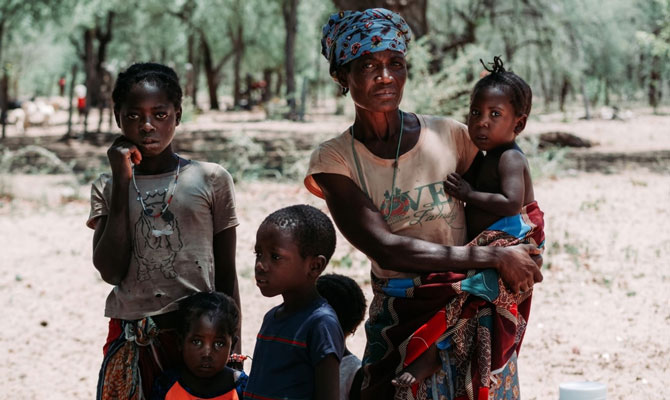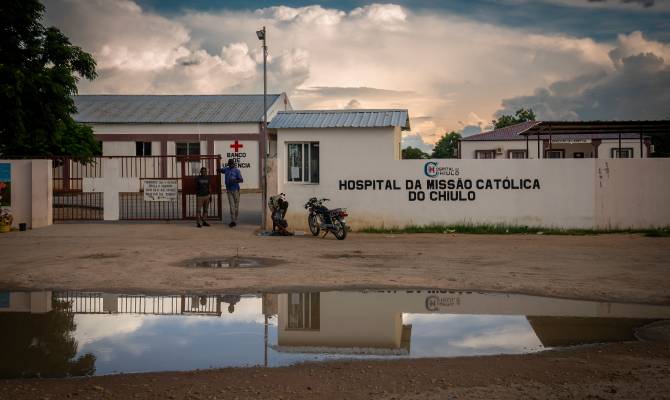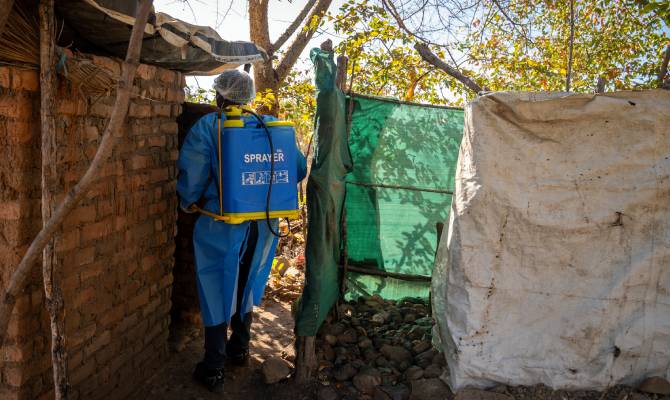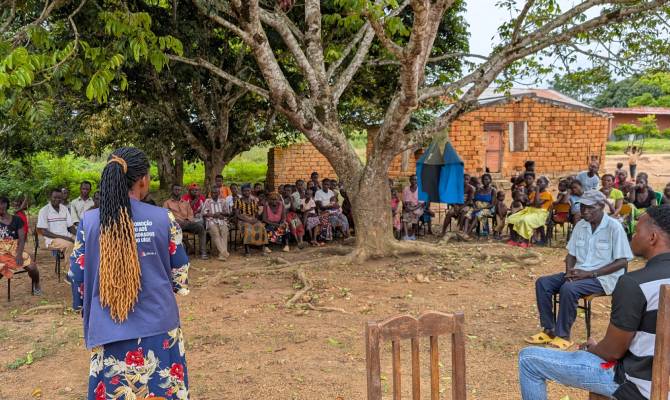«To reach the village of Epango, in the municipality of Mucope, it takes almost two hours by car from Chiulo Hospital in southern Angola. The road is unpaved, runs through nature, and in the rainy season becomes difficult to travel on. Compared to other villages, a well here allows people access to water and a watering hole for animals. During the latest vaccination and prenatal consultations conducted by Cuamm nurses and public health nurses, 60 children under 5 and 10 new mothers showed up.
Dulce (in photo) is 37 years old, speaks the local language and arrived with five of her 12 children. She told us that her youngest was the second time she had visited. The child is two years old, was born in a “kimbo”, a typical Angolan home, and had not yet received the tuberculosis vaccine, as only the hospital administers it. Dulce became aware of the activities of the mobile brigades through word of mouth from the “parteiras”, the local midwives, and community agents, and since the meetings began to take place on a regular basis, she decided to participate. It is thanks to figures like these working among the population that Cuamm is able to reach the most remote places, to which it would not have access otherwise. Women’s main problems include transportation to health centers and the need to care for their children and camps. The presence of the Cuamm nurses makes it possible not only to bridge these difficulties, but also to help raise awareness».
Two years of the Fresan program: the results of the mobile brigades
The Fresan program began in March 2020, implemented in one of Angola’s southern provinces, among the most affected by the worst drought in 40 years. The project aims to strengthen the health system for malnutrition management on different levels. It also aims to monitor the health status of children under five and pregnant women, improve the adoption of good nutrition and hygiene practices at the community level.
Among the program’s main activities are the mobile brigades, a team of four nurses deployed to 33 villages, in those more remote areas with difficult access to health care systems. The service brought to communities includes routine vaccinations of children under five and women of childbearing age, prenatal visits to pregnant women and nutritional screening of infants, pregnant mothers and children. Cuamm is the only organisation in Angola that currently performs a nutritional assessment of women. For those who fall within the criteria of malnutrition, our nurses deliver a food kit, a small help to be able to mitigate the food insecurity these communities experience.
Between 2021 and the first quarter of 2022, 190 outings with the mobile team were carried out, more than 10,000 children under the age of five received nutritional screening. Nearly 3,000 prenatal visits were performed. Together with the nutrition manager, at the municipal level, more than 40 supervisions with “on-the-job” training were carried out in health centres with outpatient services for the management of malnutrition. 66 health technicians, including physicians and nurses, were also trained on the integrated management of acute malnutrition.

The rates of malnutrition cases among children is highly variable from month to month, however, we can say that, in general, there has been a decrease in cases. In the first four months of 2022, the cases found are about half as many as in 2021. There was also a decrease in malnutrition cases, among pregnant women and infant mothers who received nutritional screening. We will have to wait until the end of this year to have a more in-depth assessment of the positive and virtuous effects of this intervention.
The three southern provinces over the past 3 years have been beneficiaries of an integrated program to strengthen food and nutrition security through the efforts of many NGOs, each with their own focus, nutrition, agriculture, and water. Everyone’s commitment and the blessing of a slightly more abundant rainy season than in 2021 will benefit the people of Southern Angola.

![]()
This news item has been produced with the financial support of the European Union. The contents are the sole responsibility of Doctors with Africa Cuamm and do not necessarily reflect the views of the European Union.





